Roosters Crowing: Everything you Should Know
One of the most recognizable animal noises in the world is the sound of a rooster crowing. The proud and loud “cock a doodle doo” alerts farms and all their inhabitants to the pre-dawn sun, and drives small-town neighbors crazy where suburban folks try raising a flock of their own. Whether you love it or hate it, if a rooster is around, then the sound of his crow will inevitably come at daybreak.
A rooster will always crow at dawn, or just before it, every day. He will continue to crow whenever and wherever he chooses.
The question has been asked as long as people have had chickens. Why do roosters crow? The true and most recent scientific explanation indicates that they have a circadian rhythm that decides when the rooster will crow. Below are some simple answers and more fun facts about their signature morning singing and why they do it.
But before you dive into this topic, did you know I've got a page packed with my go-to chicken stuff? From the best feed to handy tools, it's all there. Don't you want the best for your flock? Check it out right here.
Why does a rooster crow?
The honest answer to that is, well, no one knows. A recent study done by researchers shows through tests and trials that the birds truly do have an inner circadian rhythm that tells them when to crow.
Our observations prove that the rooster breaks the dawn every morning as a function of his circadian clock. It has been known for a long time that crowing is also induced by external stimuli. We conclude that not only anticipatory predawn crowing, but also external stimulus-induced crowing, is under the control of a circadian clock.
Cell.com
They also show through their study that roosters seem to function on an internal clock of about 23.8 hours, rather than our 24, which would explain why they always seem to crow just before dawn.
After all the data was reviewed, the basic ending answer to the above-mentioned question and study is that the rooster simply crows to announce the beginning of the new day.
Wait, I have some recommendations for you!
Before you go any further, I want you to take a look at some of the recommendations I've handpicked for you. I think these are essential items you should have for your chickens flock. You can check them out and buy them directly from Amazon.
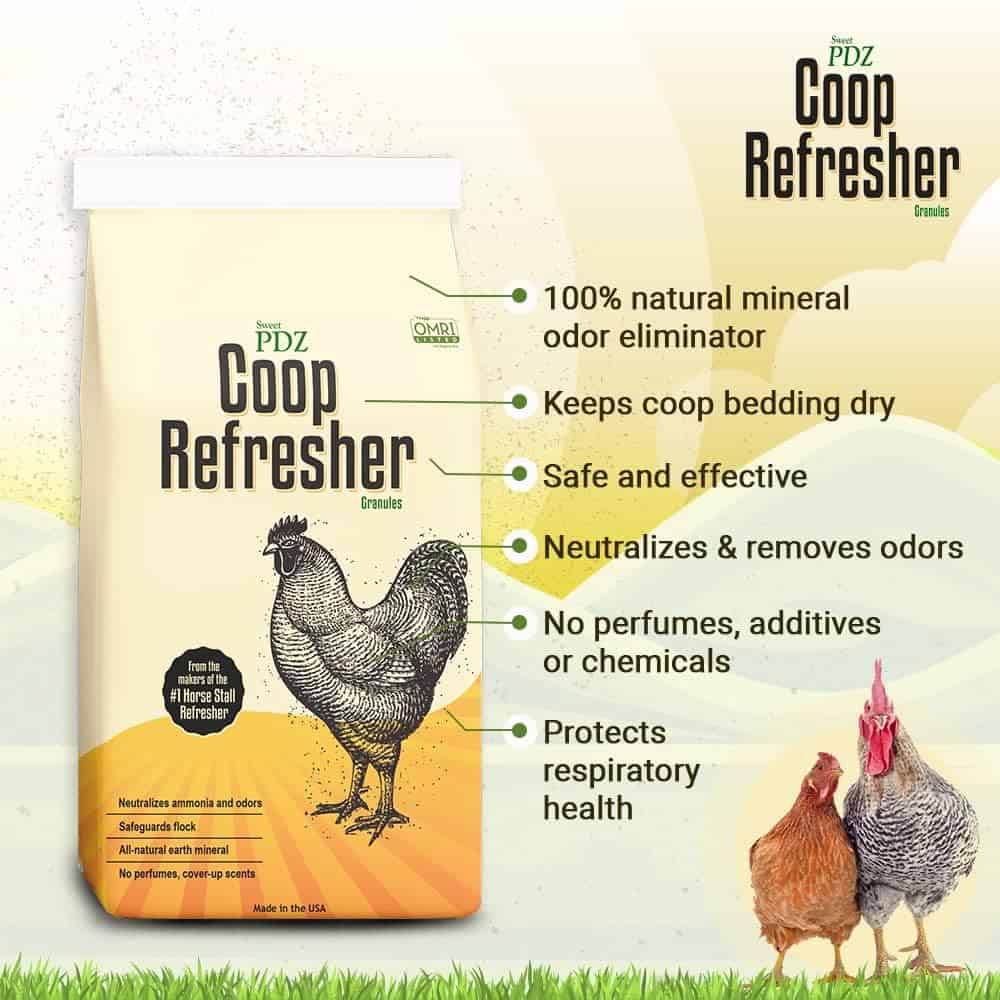 |  | 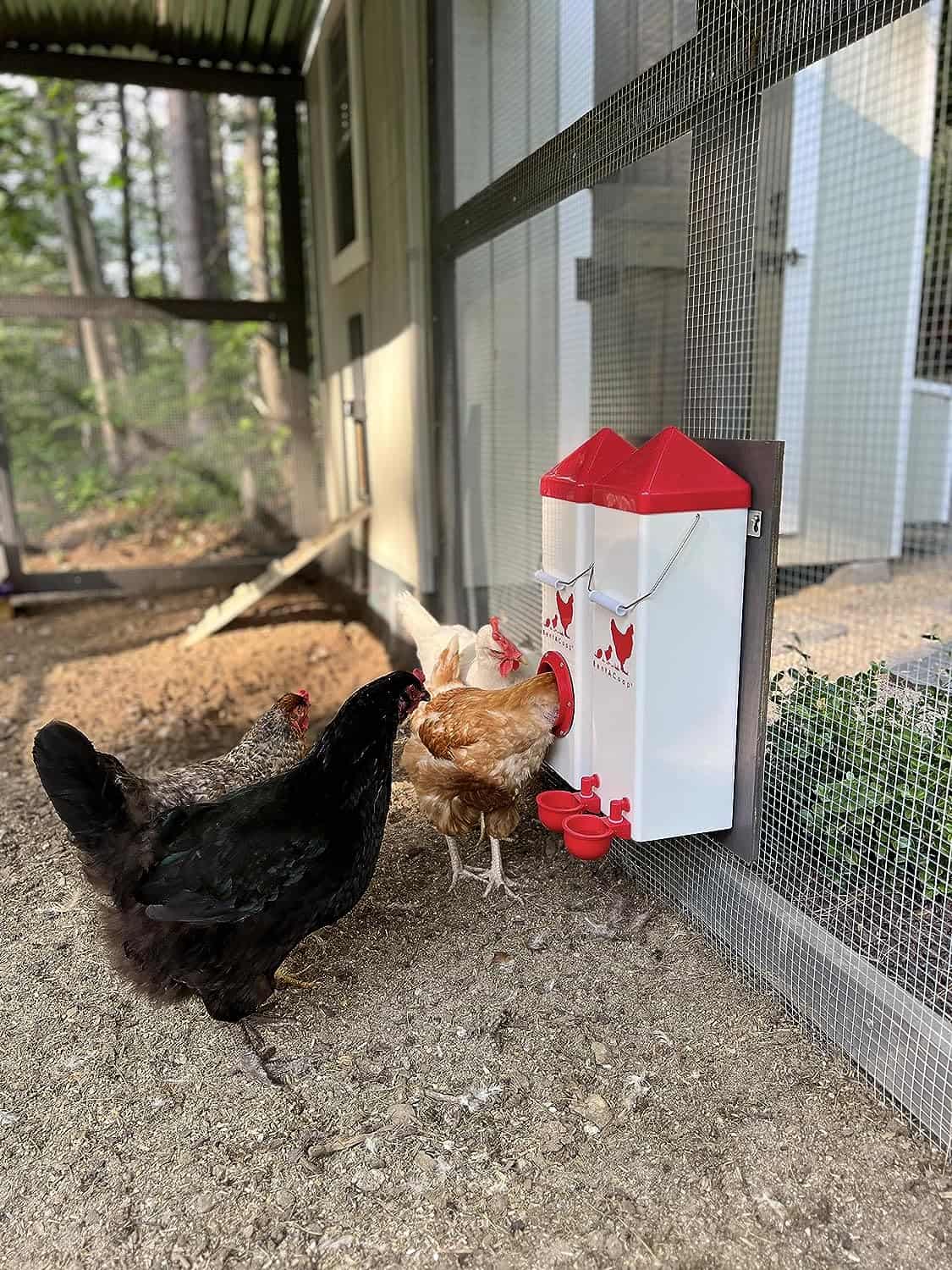 |  |
| Essential accessory for your coop | No more tripping over hoses! | Predator protection made easy | Comfort + style is possible |
What does a rooster crowing mean?
Sometimes a rooster crowing means nothing, and they simply just want to make noise for their entertainment. But then there are times when the rooster has a reason for his crowing. As mentioned above, some roosters become overly excited about mealtime and will let out a lot of noise.
Some will be attempting to establish their territory with other roosters, or maybe even the humans taking care of them. Having a pair of dueling and jealous roosters can cause many ruckuses on the farm or in the flock.
Danger is a good reason for a rooster to start crowing excessively, especially at night. They are generally pretty quiet when it’s dark, as long as there are minimal stimuli, so in those cases of having a suddenly loud rooster at 2 am could mean there’s trouble around the coop.
Then there are the love birds, roosters get riled up during the mating season and start making more noise than ever before. Finding his new favorite hen and having some fun with her could mean you’ll be hearing a lot more loud crowing from your rooster.
As a whole, the most common reasons for a rooster to crow are territory competition, mealtime, mating and sun rise.
What time does a rooster crow?
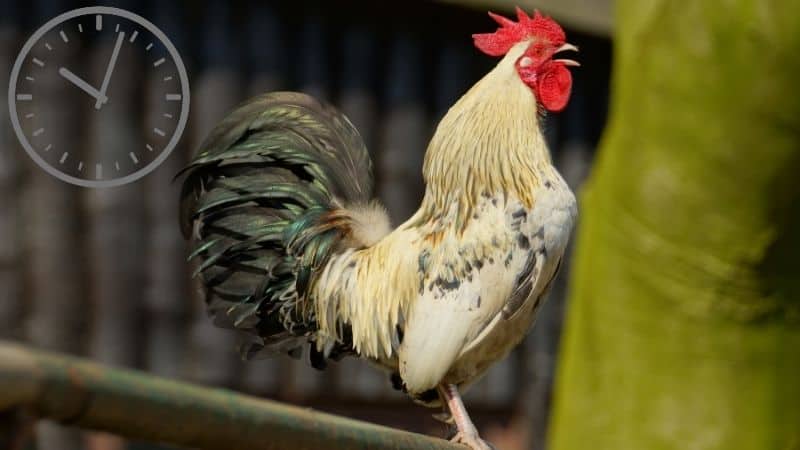
Roosters will crow every morning just before dawn as the sun starts to peek over the horizon. They will also just do as they please and crow at any time of day, no matter what. Mostly because they can, but sometimes they have reasons for their noise making.
Maybe the rooster is hungry and lets out an excited song when being fed, or perhaps he sees some signs of danger at night and needs to alert his flock. That brings us to our next topics.
Crowing at night
As mentioned earlier in the article, nighttime crowing is less common, but not necessarily that strange. And just like most things to do with roosters and why they like to crow, it is still unknown, but humans enjoy speculating.
Many people think that roosters crow at night if they hear noise around the coop, whether it is just a leaf blowing by or actually a fox or coyote, who knows? But they’re going to make a lot of noise about it to try and scare it off, as well as alert the rest of the flock.
Then there’s the possibility that there was some kind of light, like a headlight from a car or some other source, that caused the rooster to make noise. It is known that roosters can be triggered by lights to crow, whether from a flashlight or the sun.
What can trigger a rooster to crow?
The headlights from a car or the porch light from your house could potentially be enough to cause a rooster to go off. Usually, this would happen at night, since they would only see these lights well enough if it was dark.
Another reason could be other roosters and flocks in their territory. In areas where there are several separate flocks of free-range chickens, roosters would do the job of keeping the hens in their specific territory and away from the other males. The roosters will call back and forth to each other to keep track of rival males and their flocks; their hearing is actually good enough to know the distance of their crows.
The crowing pecking order
When you have a flock with several roosters, there is always going to be a hierarchy established among the males. This typically means there will be one male who is the dominant rooster and the others must follow his rule. He will always crow last and the loudest, almost as if he has to get the final word in.
If one of the ‘weaker’ roosters decides to crow out of turn, then he will most likely suffer the consequences of the alpha and be put in his place.
The hierarchy is similar to what we see in many animals, the dominant male will continue to be challenged as he ages by the younger roosters. But while he is the leader or the ‘alpha’, he will be the one to crow the first at dawn.
Once he is no longer the head rooster in charge, he will have to wait his turn in the pecking order. Some defeated males will go off in shame and isolate themselves from the group for a while.
Mating and crowing
There seems to be a direct connection to mating and hens laying eggs and roosters crowing.
They become the most excited after the deed, obviously. As well as once a hen lays an egg. Maybe he’s celebrating his fertility? The reasons are unknown to humans as to why they vocalize afterwards, but perhaps we may have a good idea.
Do roosters crow because they are bored?
Boredom in the winter months with roosters and chickens that are used to a more free-range way of living is a problem. Sometimes it leads to fighting among the hens as well as the roosters ducking it out over territory in such a small area. Even if you have a barn, the noise from all the cooped up chickens and their clucking and crowing could get pretty loud.
Crowing because a rooster is bored is certainly something that farmers and backyard chicken raisers alike will see. Making sure that your birds have something to entertain themselves with, like toys and treats of different varieties should help to lessen the amount of boredom crowing that’s heard.
Do some breeds of chicken crow less often?
As a whole, there are no breeds of chickens that crow less often. A rooster is going to crow if he wants to and at any time of day that he feels like it. While there are some suggestions that certain breeds may be a little quieter (pitch or sheer loudness), the bird will still make noise.
A few chicken owners say that having a Lavender Orpington could mean a quieter rooster or maybe a Seramas breed as well. Smaller bantam chickens have quieter crows only because of their size, but it doesn’t mean that they don’t still shout several times daily or that it will be less annoying.
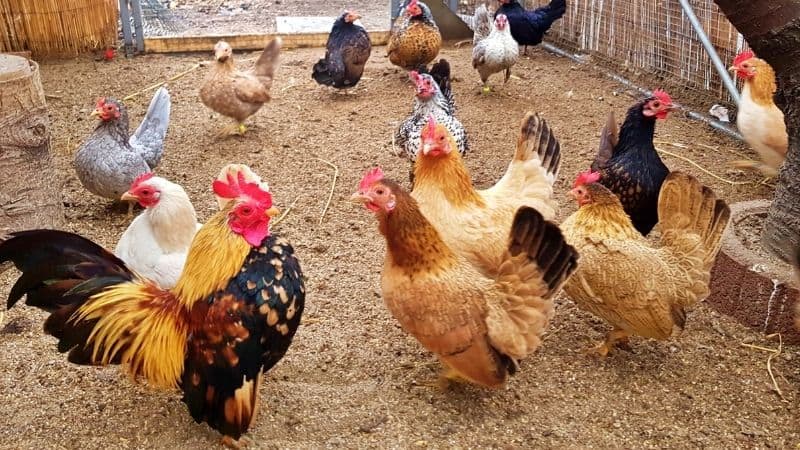
The small breeds tend to have more shrill and high-pitched crows that can get under someone’s skin just as badly as a standard sized rooster. But ultimately, they will still make noise and potentially bother your neighbors. It’s impossible to have a rooster that never crows.
If the issue is that you can’t have a noisy flock or a rooster crowing every morning at dawn and for any other reason for that matter, then it may be best to not have chickens. Or more specifically no rooster at all. No crowing = no rooster.
How loud is a rooster?
Roosters can crow up to a decibel of about 90. This is pretty close to the loudness of a dog’s bark.
Those neighbors with the yappy yorkie can’t complain much about your rooster!
Chickens making their typical noises or cackling at each other and laying eggs is only around 70 decibels. Did you know this is only a little louder than a typical human conversation?

Lawn mowers and other outdoor equipment is also around the same as a rooster crowing, only he doesn’t go on for 20 minutes at a time and more like a few seconds here and there.
Overall, a rooster’s crowing is short-lived, but many people still become irritated by it, so it may be best to check with a close neighbor before bringing one into your backyard.
How long does a rooster crow for?
The average rooster probably crows for a few seconds, but he could continue to go for as long as he wants. If you have several roosters, then you know that once one starts, you will hear each one of them right after the other.
But did you know that there are actually people who seek out roosters that have really long crows? These birds can go on for as long as 15 seconds. One breed called the Drenica can crow for up to 30 seconds!
In several countries like Japan, Germany, and Russia, you can find the breeding of these “long crowing” roosters going back hundreds of years.
Many of these breeds continue to be highly sought after, some of these chicken enthusiasts have competitions to find the rooster that has the longest and best sounding crow. It is a seriously respected and honorable award to win among that community.
Can you stop a rooster from crowing?
There are devices and techniques that can help reduce how often he crows as well as how loud it is. It is important to know that none of the mentioned options will completely eliminate the rooster from crowing.
- Know your rooster’s needs. When your chickens are out of feed and water, they will start making more fuss, especially the rooster. Ensuring that your flock has what they need will help minimize how often he feels he has to crow to get your attention.
- Adjust their environment. A rooster likes to crow to alert his hens to danger and other environmental stimuli. Observe your chickens and their surroundings, seeing what sets off the rooster most, so you can attempt to eliminate or change what causes his crowing.
- Limiting your flock size. Not having too many chickens, especially roosters, can help with the excessive noise. If there are several males around, the roosters feel the need to crow one after the other. They may be louder during mating seasons and periods when the alpha is being challenged.
- Nighttime black-outs. You can create a black-out box for your rooster to sleep in at night, or ensure that the coop is well insulated and sound proofed. The nighttime crowing is going to be what disturbs you and your neighbors the most. Keeping him somewhere where he cannot be bothered by lights and noises can be highly effective in minimizing night crowing.
- Lastly, crow collars. These are either purchased or made to fit around the neck of the rooster. It restricts the volume of airflow to the rooster’s voice box, therefore making the crow quieter, but not completely eliminating it.
If you don’t know, it looks like this (Amazon). It’s inexpensive, so you can always try it and see how it goes.
While a rooster’s crow can be irritating to some, others truly find them a wonderful and joyous sound to start off the morning and having one around will be a noisy but entertaining experience.

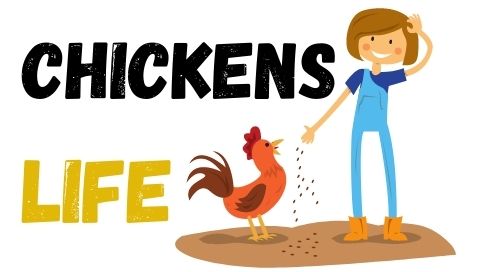
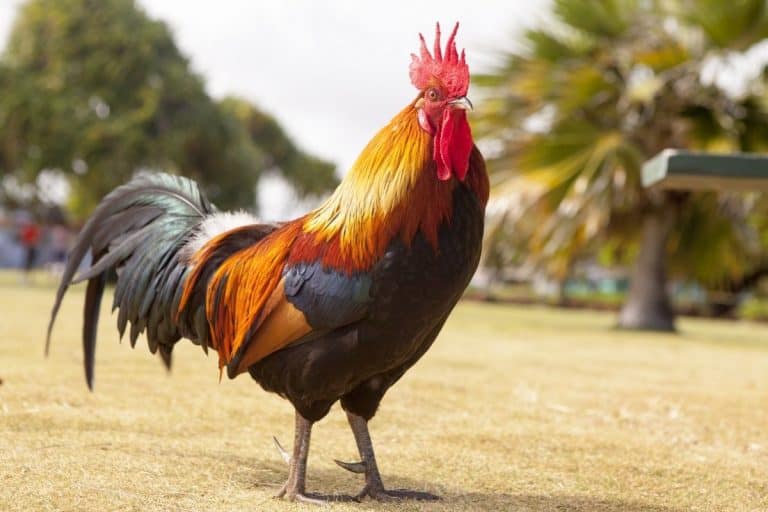
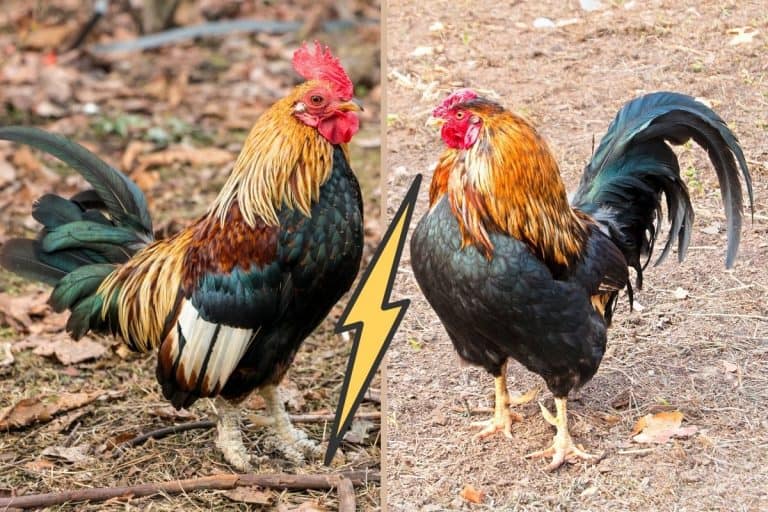
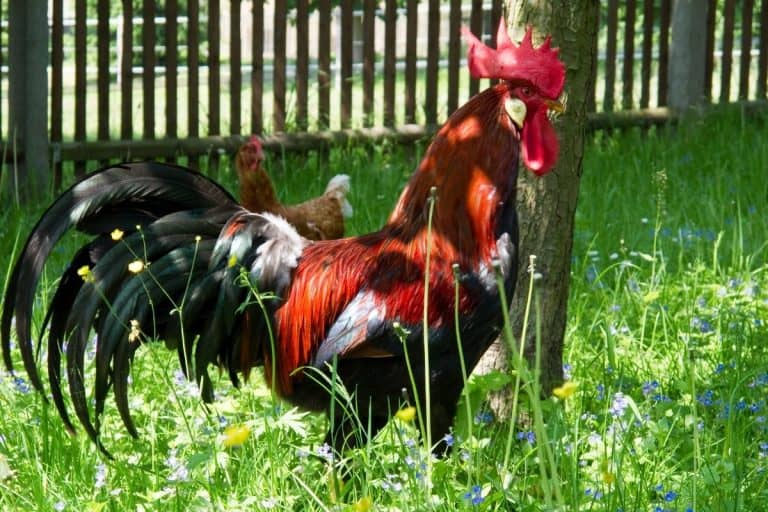
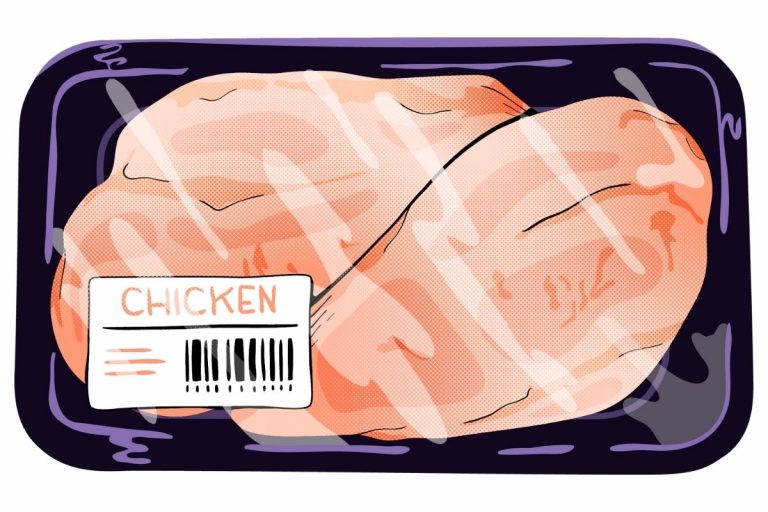
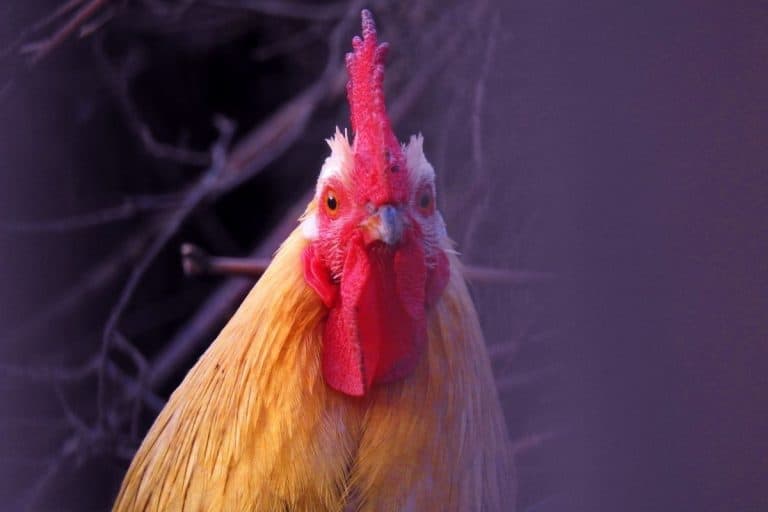
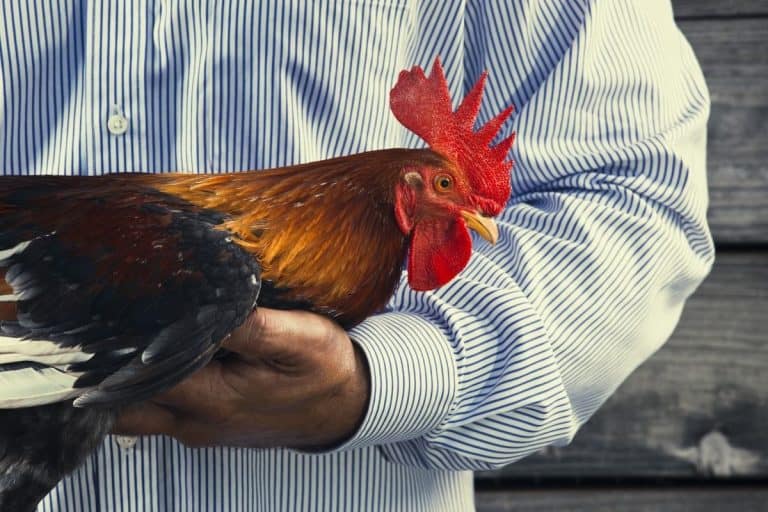
My mom lives in a suburban neighborhood and two close neighbors got chickens. We love them and I’m really tempted to pet them but am afraid to be pecked. They’re treated nicely and picked up by owners alot. Another question, why aren’t they crowing at sunrise and waking everybody? They wouldn’t be there long if they did.